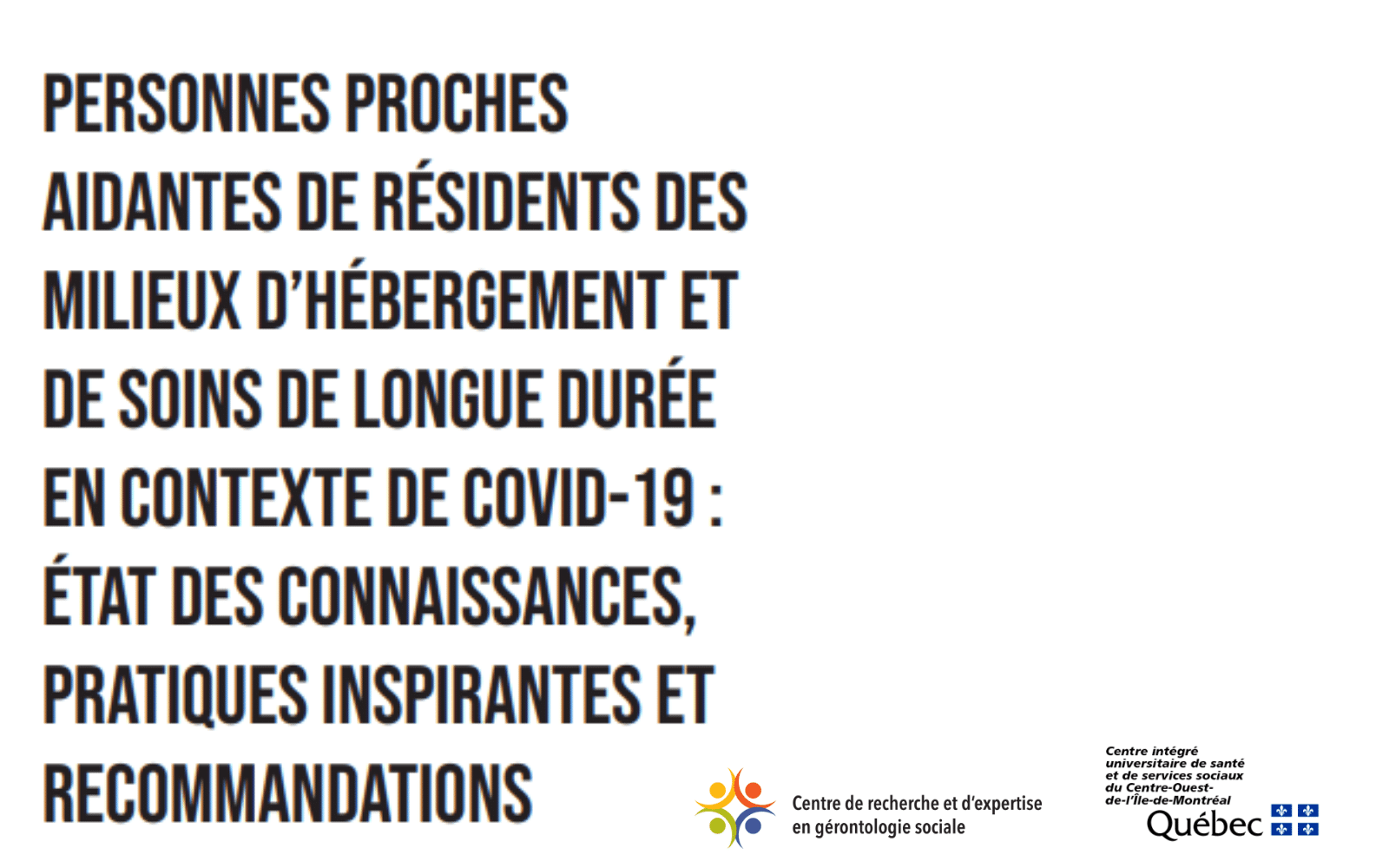This “rapid response” report (in French), available in both a full-length version (47 pages) and as a summary(4 pages), was written in response to the concerns raised by caregivers and community representatives about the practices and procedures applied during the first wave of COVID-19. The document outlines the primary needs of those who were the caregivers of long-term care facility residents during the pandemic and suggests various possible approaches to managers and decision-makers. Written by Margaux Reiss, the report is based on a grey and scientific literature review as well as on expert consultations. A related webinar aired in February 2021, in collaboration with the Communauté virtuelle de pratique Continuum Aînés.
Given the rapid evolution of knowledge in the pandemic context, we must underscore that the findings presented in the report are from the data that was available as at October 1, 2020.




